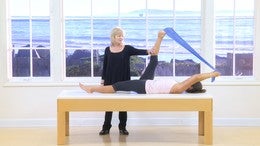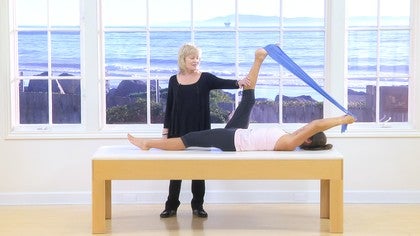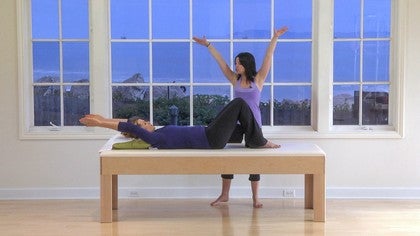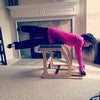Description
This discussion is based on Mari's experience and is not intended to be medical advice or a prescriptive tutorial. Please consult with your doctor or your client's doctor to learn individual information that will support you in your endeavor.
This brief discussion is available to everyone, including non-members, so please feel free to share it!
About This Video
Transcript
Read Full Transcript
The numbers seem to be increasing on a daily basis of people being diagnosed with neurological disorders. The number of people seeking help and keeping their bodies moving is also increasing. So you might find that there might be a number and extra number of people coming into your studios that are afflicted with one of these horrible diseases. I myself have been recently diagnosed with als and which is Lou Gehrig's disease and it is a, uh, the nerves, uh, begin to die and your muscles atrophy and you lose motor skills. Uh, mine is, uh, developing slowly, thank God, but I think it is philosophy that has helped me and it has helped to arrest some of the symptoms, um, that I've been facing when before I was diagnosed.
I did have this horrible atrophy in my arms, um, in some other places in my body and I was misdiagnosed, which happens all a lot. My spine surgeon did a surgery on my neck to try to correct, uh, what he thought was a major nerve being blocked and that was supposed to help my arm, uh, get more mobile when in fact it got worse. And he kept saying to me, but you have to work your, um, work at every day. Take weights every chance you get. Put a weight in your hand to do arm exercises, work as hard as you can.
And that's all I heard from everybody. Well, when you have a neurological disorder, that's probably the worst thing that you can do is to go for the area of the body that is weak and try to make it strong. You can't, what you can do is help give your client a little bit better sense of wellbeing and help them move their entire body from the core. That's why Palava [inaudible] is so especially wonderful for people with neurological disorders because we have to learn how to connect and reconnect. So in other words, if, if my arm doesn't work, uh, moving from my shoulder, I might be able to transfer the work down into my back and my arm might move a little bit better moving from my back or the muscles are not atrophied. I'll say it again. It is the wrong thing to do to try to strengthen muscles that are weak when someone has a neurological disease that will make it worse.
[inaudible] is wonderful for people that have als, ms and Parkinson's because, because we do work from our core, we work on our circulation throughout the body. We work to connect the dots. We're not working to, to muscle up. We're working to tone up. Of course, when you get into the more advanced stages of the politest work, but we are not working to muscle up. We're working to connect, be more grateful, be more coordinated, be better balanced. And those are some of the things that seem to disappear when someone has a neurological disorder. If I can move my arm up like this, that's great, but I can't move my other arm up like that. But I will have people do it for me. So I keep the range of motion, the joint, so the drive doesn't freeze because there is a danger of the joints freezing if you stay in mobile. So it's important to do, uh, to help your client if they're immobile in leg or, or an arm to move up for them and to make it equal with the other side.
Um, I'm going to be demonstrating specifically some exercises, um, later on so you can see exactly what it is I would do or what I think would be great for people that have neurological disorders.
The Teacher's Corner: Pilates for Neurological Conditions
Comments
You are right, I have many friends that have neurological diseases. Any information that you share is greatly appreciated. by many.
You need to be a subscriber to post a comment.
Please Log In or Create an Account to start your free trial.


























